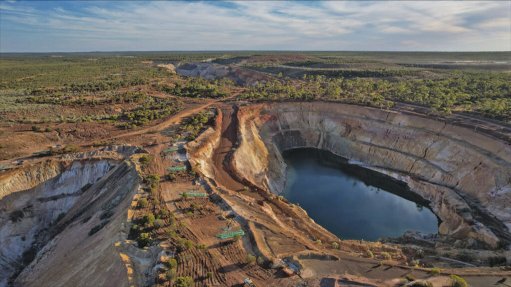
KALGOORLIE (miningweekly.com) – Gold miner Capricorn Metals is hoping to complete a definitive feasibility study (DFS) and take an investment decision on its Mt Gibson project, in Western Australia, by the end of the year.
Speaking on the sidelines of the Diggers and Dealers conference, Capricorn executive chairperson Mark Clark said that the invest decision at Mt Gibson might be staged, but that the company would be in a better position to move forward with the project, populate permitting applications and start the ordering of long lead items.
“We can’t sit on our hands and wait around forever. If we do the work, get ourselves into a position where we see what the costs are, we can move ahead. Obviously, if the costs aren’t any good, we can always take our time. We know that this project is going to get bigger, we know there is going to be lots more drilling to do. But I would be surprised if the costs of the project have gone up to the point that it would kill the project.”
Capricorn in January launched a A$10-million, 81 000 m resource infill and extensional drill programme at Mt Gibson to underpin an updated mineral resource estimate and maiden ore reserve estimate. This work is expected to facilitate the completion of the feasibility studies.
Mining operations at Mt Gibson ceased in 1999, and the project was placed on care and maintenance after producing 799 600 oz of gold. A further 68 868 oz of gold was recovered from a four-million-tonne heap leach operation following the closure of the mine.
Capricorn acquired the 2.1-million once project in July of last year for A$39.6-million.
Clark said on Monday that Capricorn was now looking for similar acquisition opportunities.
“We won’t do the obvious thing, because we are trying to create value for our shareholders by being a little bit different, so we are looking at things that are a little bit off the grid, things that might have a different ownership structure, or where the owner can’t find a way forward,” Clark said.